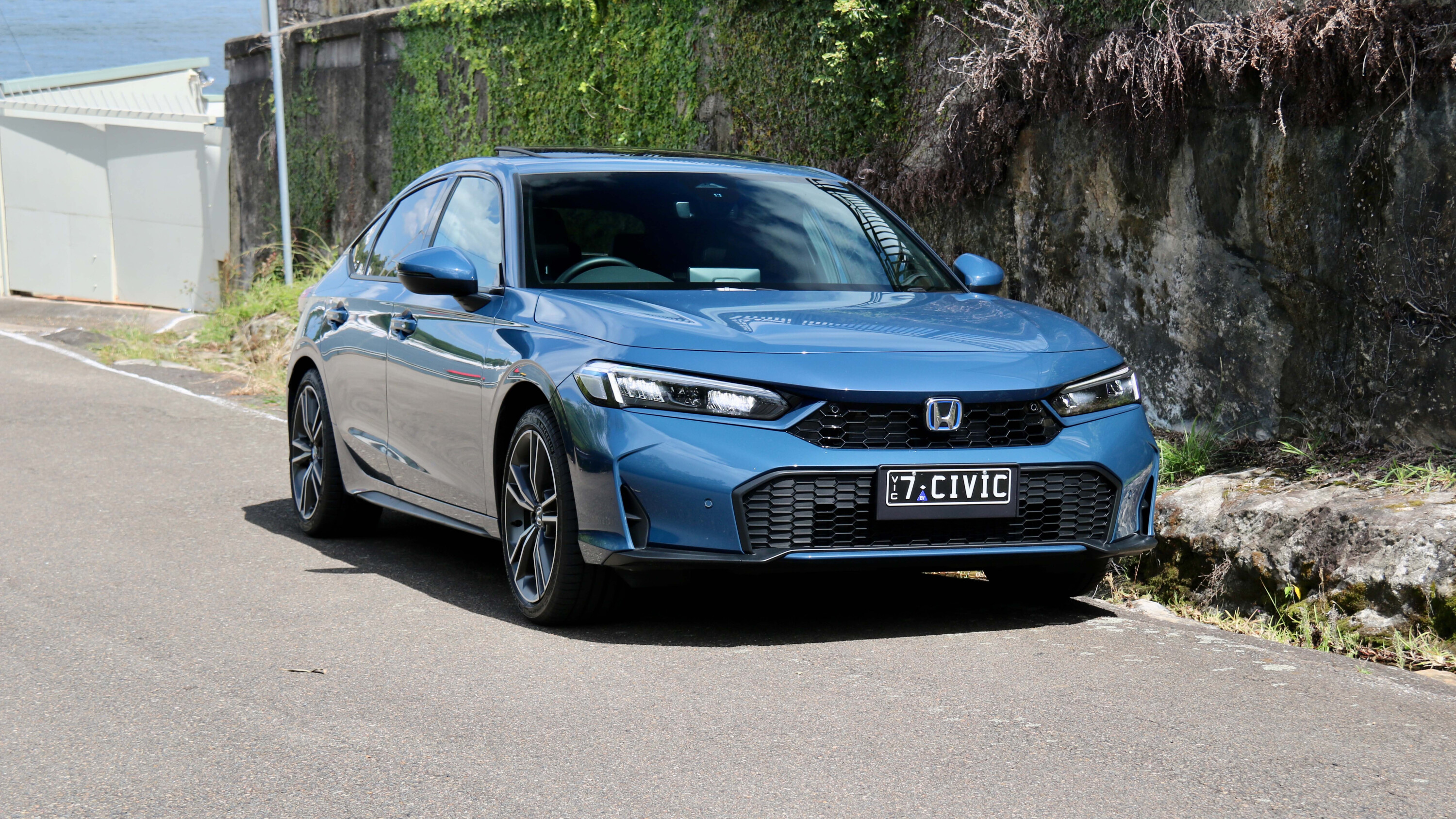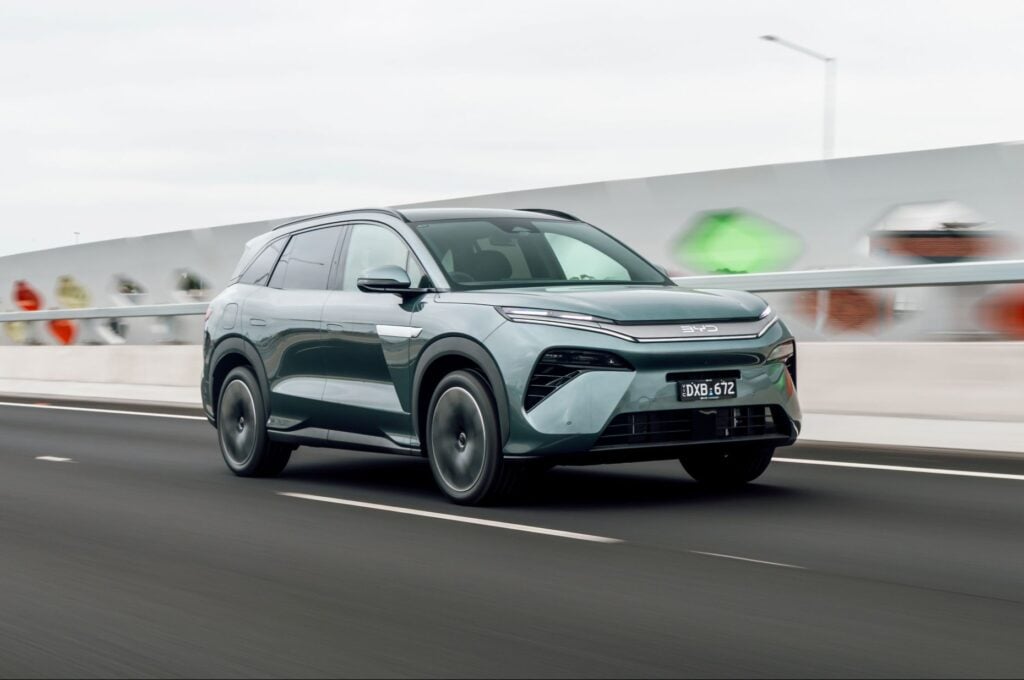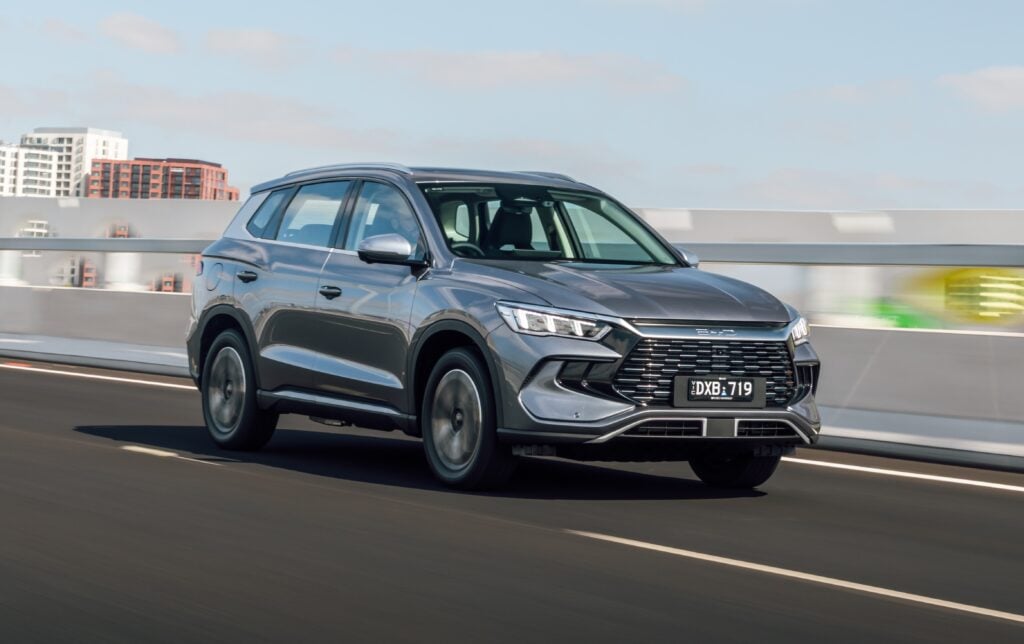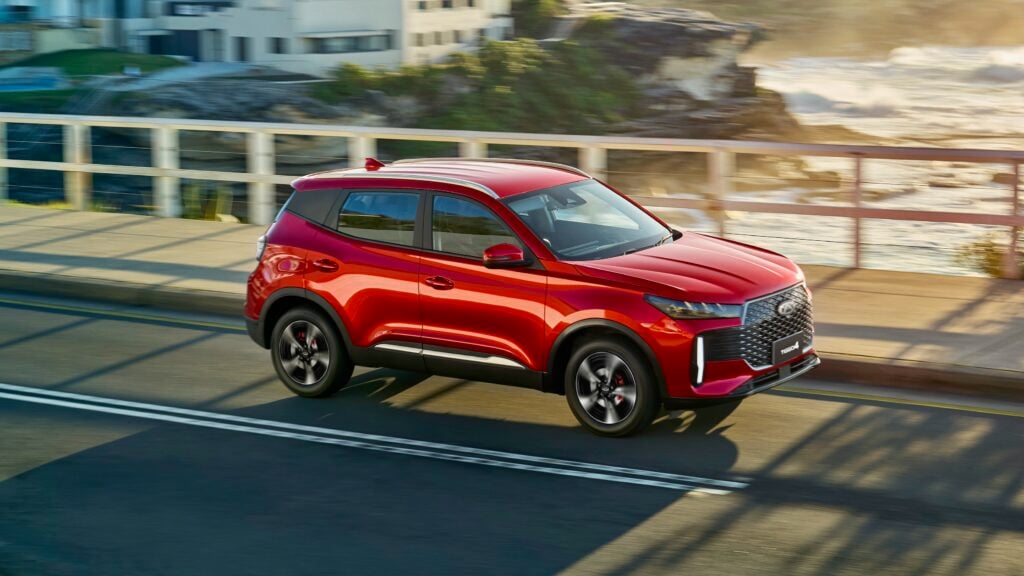Things we like
- An excellent all-rounder
- Fun to drive, yet still quite efficient
- Quite practical with a large boot
Not so much
- It’s just too expensive to buy
- No spare wheel
- Short 10,000km service intervals
Recently launched with a minor mid-life update and part of a now hybrid-only lineup, the 11th generation Honda Civic takes all of Honda’s small car smarts and adds a dose of premium quality, fun driving dynamics, an efficient hybrid system and the usual practicality that we’ve come to expect from the brand.
The previous 1.5-litre turbocharged petrol engine is no longer available and in response to demand for hybrid powertrains, a new entry-level hybrid model has been added. The exterior has also been treated to light styling changes, plus a new alloy wheel design and revised colours.
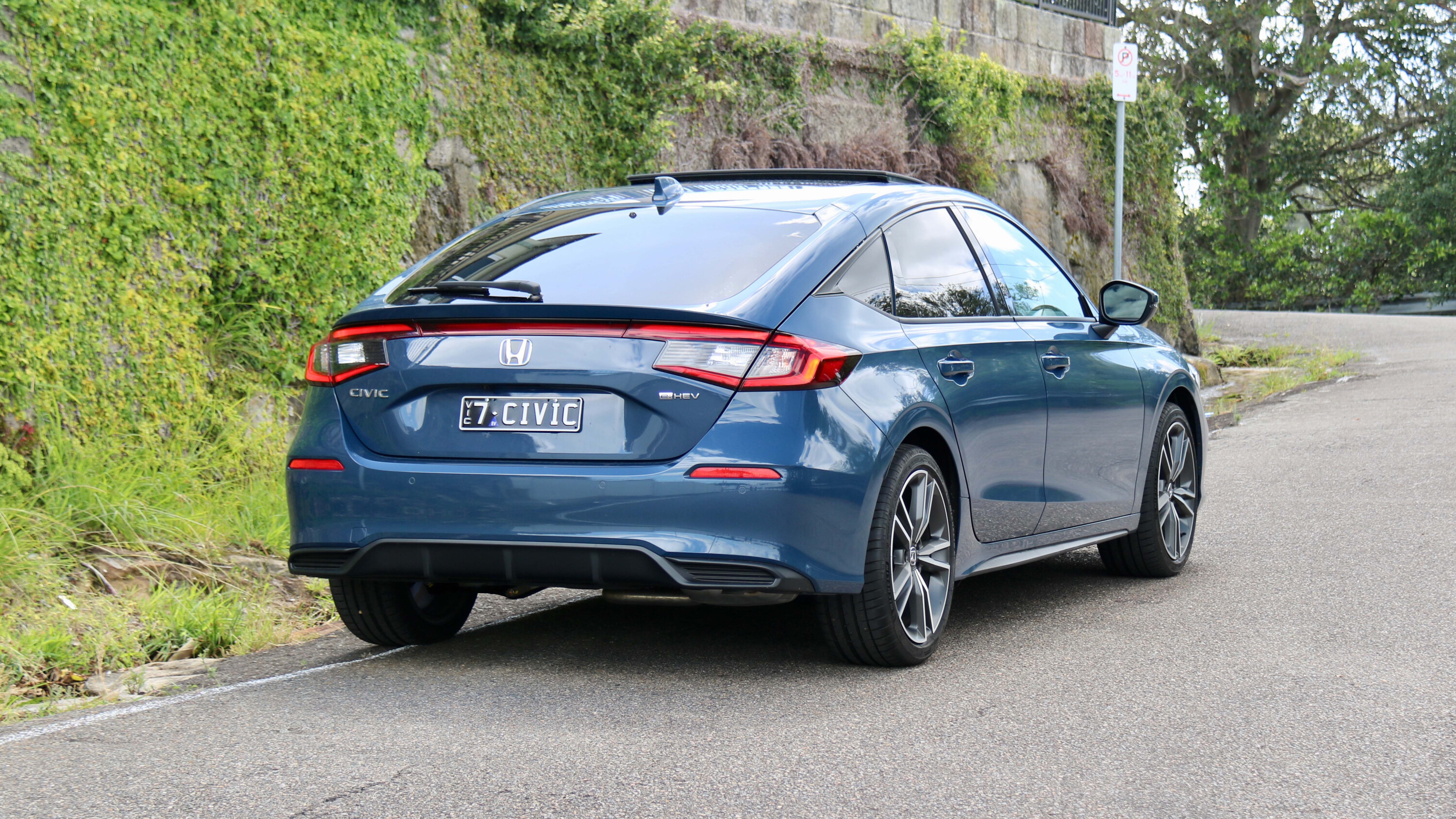
Inside, Honda has added new Google-based infotainment software, plus new equipment for the entry-level car.
The changes mean that the Civic range is now more expensive than ever before. With a starting price of $49,900 drive away, the updated range starts $2,700 higher and the top-spec LX is now $900 more. It’s not a cheap car but is it a smart buy?
JUMP AHEAD
- Pricing and features
- Performance and economy
- Interior comfort, practical and boot space
- On the road
- Service and warranty
- Verdict: Should I buy a 2025 Honda Civic?
- Civic rivals
Pricing and features
There are two variants in the Civic range in Australia: the entry-level e:HEV L and the top-spec e:HEV LX. Overseas, petrol engines and even a sedan bodystyle are available, but not locally.
| 2025 Honda Civic pricing (drive away): | |
|---|---|
| e:HEV L | $49,900 |
| e:HEV LX | $55,900 |
| Honda Civic e:HEV L standard equipment | |
|---|---|
| 18-inch alloy wheels with a tyre repair kit | Heated leather-wrapped steering wheel with paddle shifters |
| Dusk- and rain-activated automatic LED headlights | 10.2-inch digital driveru2019s display |
| Rain-sensing automatic wipers | 9.0-inch touchscreen with inbuilt Google and Google Play Store access |
| Keyless entry and push button start with a smart key card | u2018Honda Connectu2019 live services (three-year subscription) |
| Heated and auto-folding mirrors | Wireless and wired Apple CarPlay and wired Android Auto smartphone mirroring |
| Rear privacy glass | Google Maps navigation with live traffic |
| Dual-zone climate control with rear air vents | AM/FM/DAB+ digital radio |
| Auto up/down windows | 4x USB-C ports |
| Leather and cloth upholstery | 12-speaker Bose sound system |
| Six-way manual driveru2019s seat with electric lumbar adjustment | Normal, eco, sport and individual driving modes |
| Heated front seats | Adjustable regenerative braking |
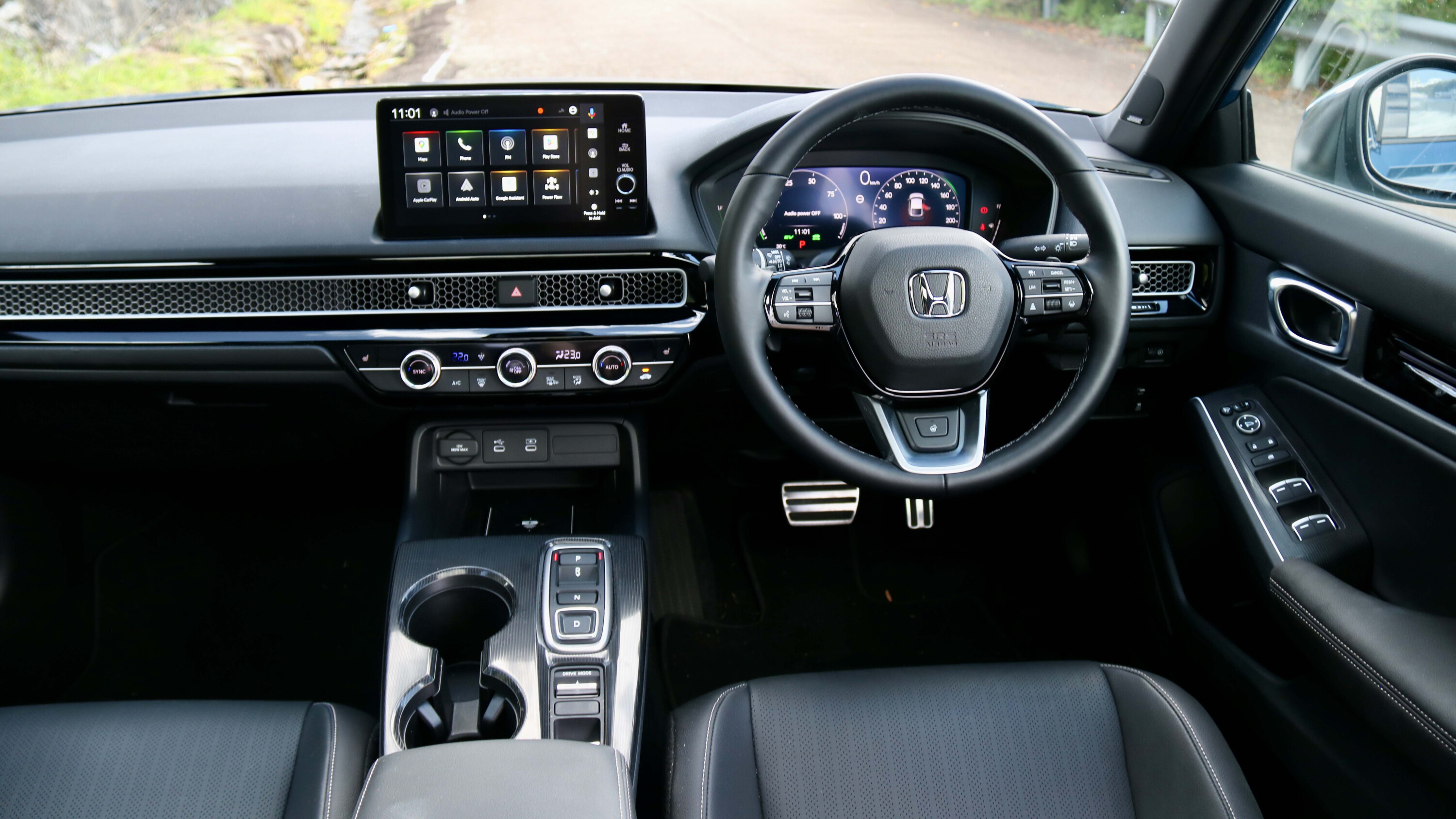
| Civic standard safety equipment | |
|---|---|
| 11 airbags (including front centre, dual knee and rear side units) | Intelligent speed limit assistance |
| Auto emergency braking (AEB) with pedestrian and cyclist detection | Lane departure warning with lane keeping assistance |
| Adaptive cruise control with traffic jam assist | Blind-spot monitoring with rear cross-traffic alert |
| Adaptive lane guidance | Front and rear parking sensors |
| Auto high beam | Reversing camera |
| Traffic sign recognition | |
| Civic e:HEV LX model adds | |
|---|---|
| Full leather upholstery | 12-way driver/8-way front passenger electric front seat adjustment |
| Panoramic sunroof | Sunglasses holder |
| Wireless phone charger | Second rear seat map pocket |
| Auto-dimming rear mirror | |
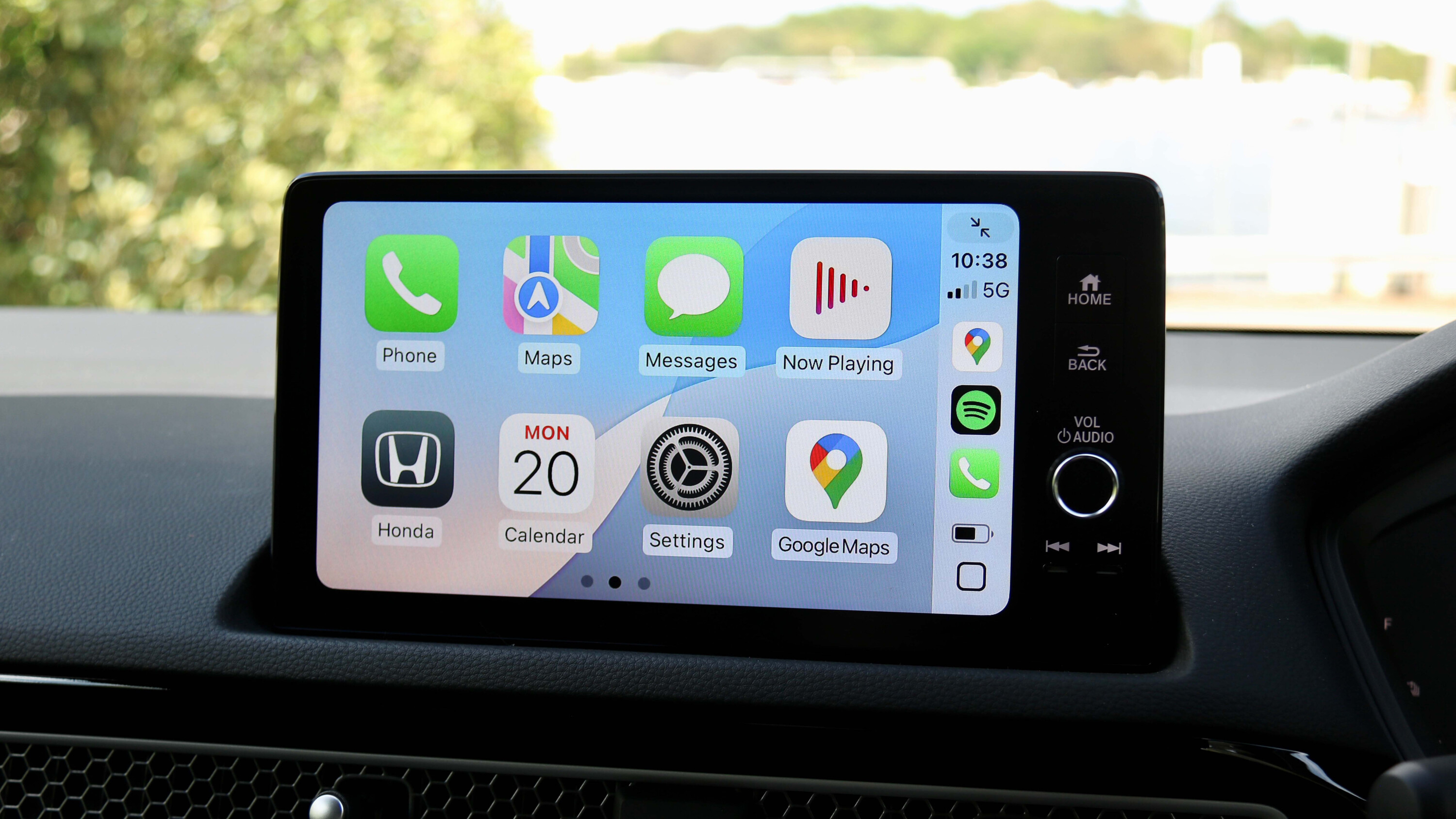
| The Civic colour range (all no cost extra) |
|---|
| Seabed Blue |
| Platinum White |
| Premium Crystal Red |
| Sonic Grey (e:HEV LX only) |
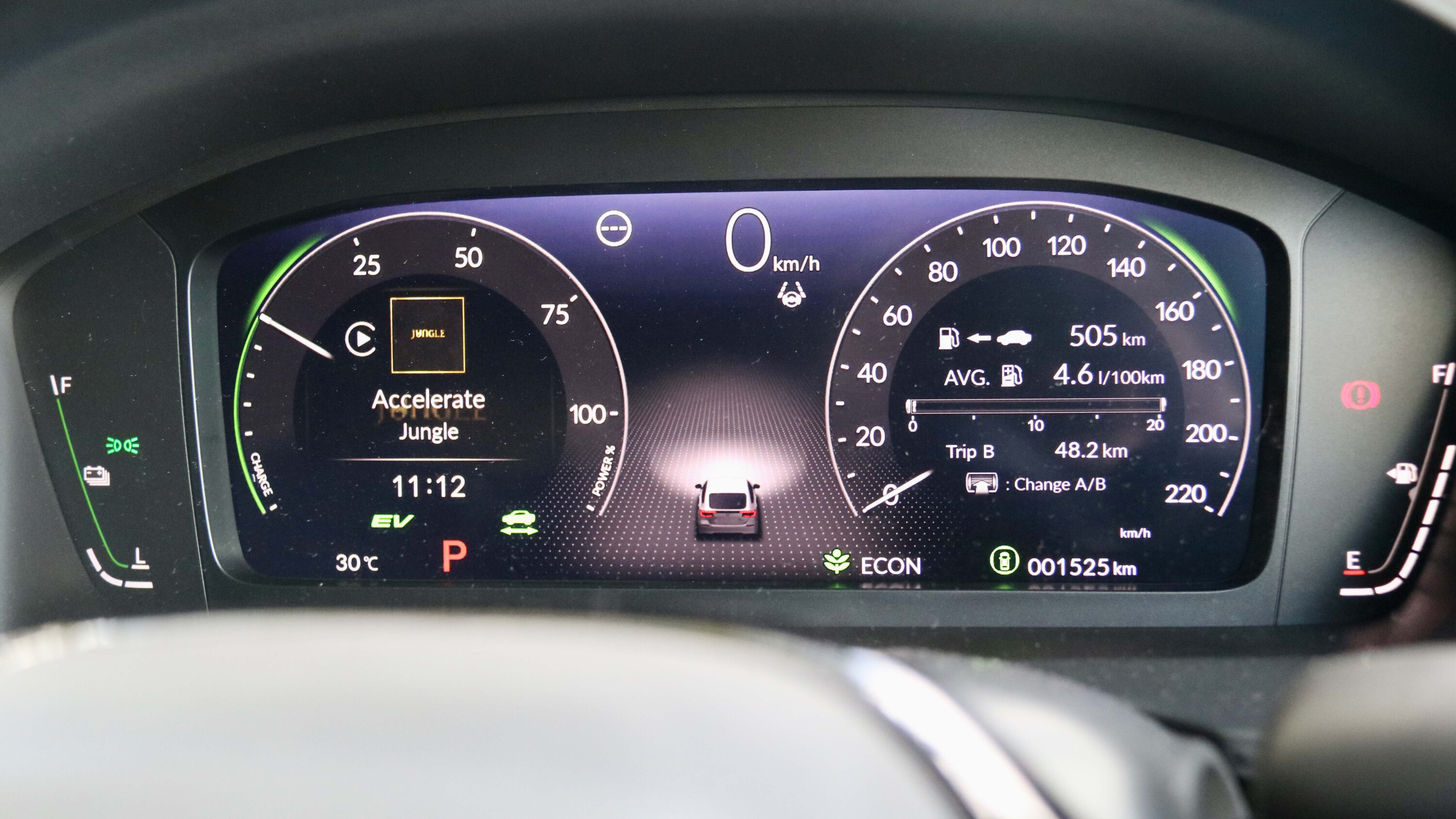
Performance and economy
The Honda Civic is powered by a 2.0-litre four-cylinder petrol engine paired with a hybrid system and an e-CVT gearbox. Its combined outputs are 135kW of power (between 5,000rpm and 6,000rpm) and 315Nm of torque (from 0 to 2,000rpm).
The claimed combined fuel consumption for the Civic hybrid is 4.2L/100km with CO2 emissions rated at 96g/km. It can run on 91RON regular unleaded fuel and features a 40-litre fuel tank for a theoretical range of around 950km. That compares well to rivals with the less powerful Corolla hybrid officially using only 0.2L/100km less, and petrol rivals above the 5L/100km mark.
In our testing, we achieved 4.9L/100km with mixed driving, which is a bit higher than Honda’s claim but still impressive. At that consumption, it’s capable of a range of more than 800km.
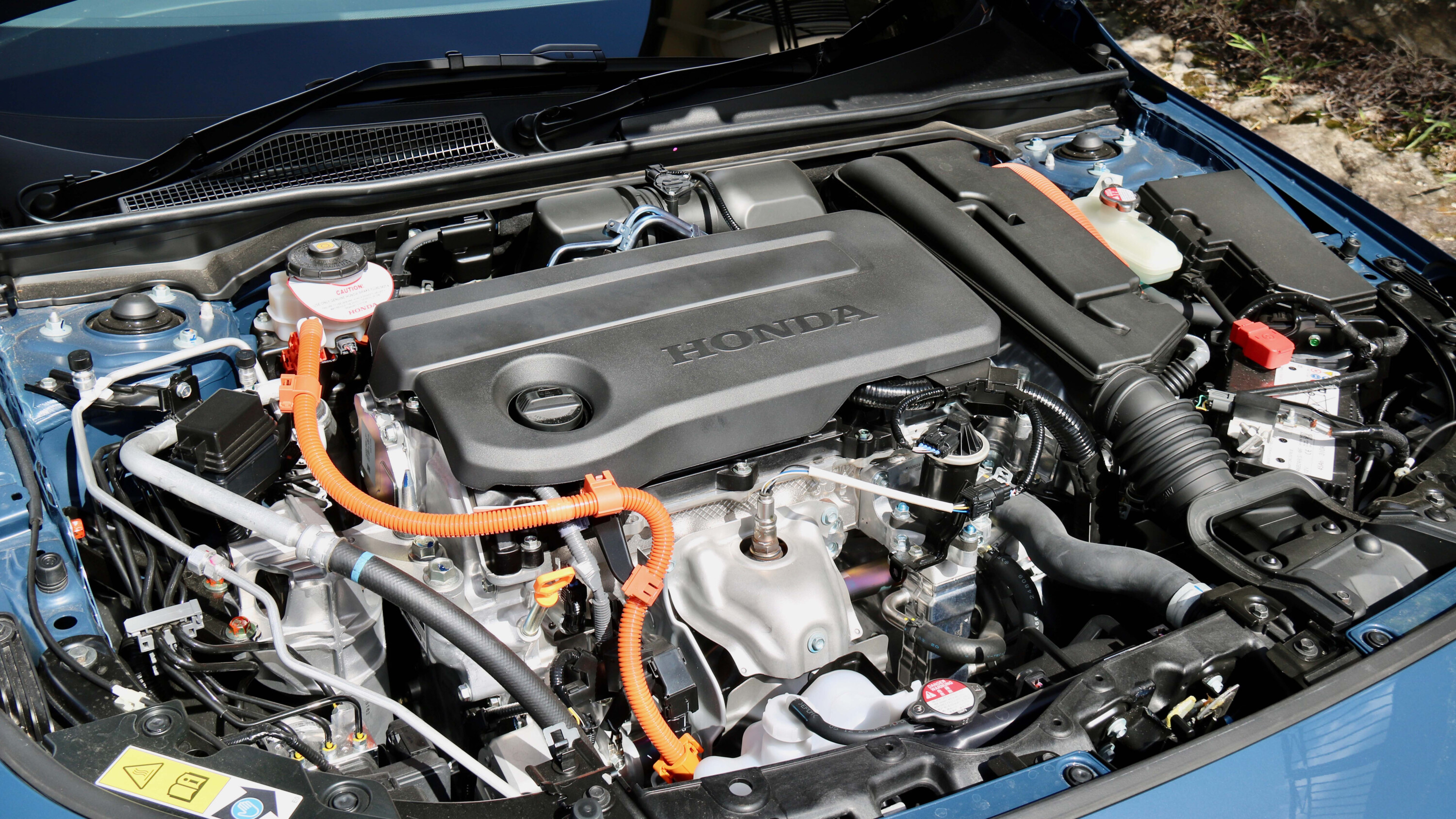
Interior comfort, practical and boot space
The Civic’s interior remains relatively unchanged in this update but that’s not a bad thing given its quality. There are ample soft touch materials atop the dashboard and doors, while the switchgear has a great tactility to it. Inside a Mazda3 is more luxurious, however, and it starts at a lot less money than the Civic.
To extend the comparison, the Civic’s cabin is more practical than the Mazda3, and storage highlights include large door bins, a big central box underneath the armrest, large cupholders in the centre console and a large tray underneath with a wireless phone charger.
Seat comfort is also excellent, and the driver’s seat has ample electric adjustment – though no memory functionality.
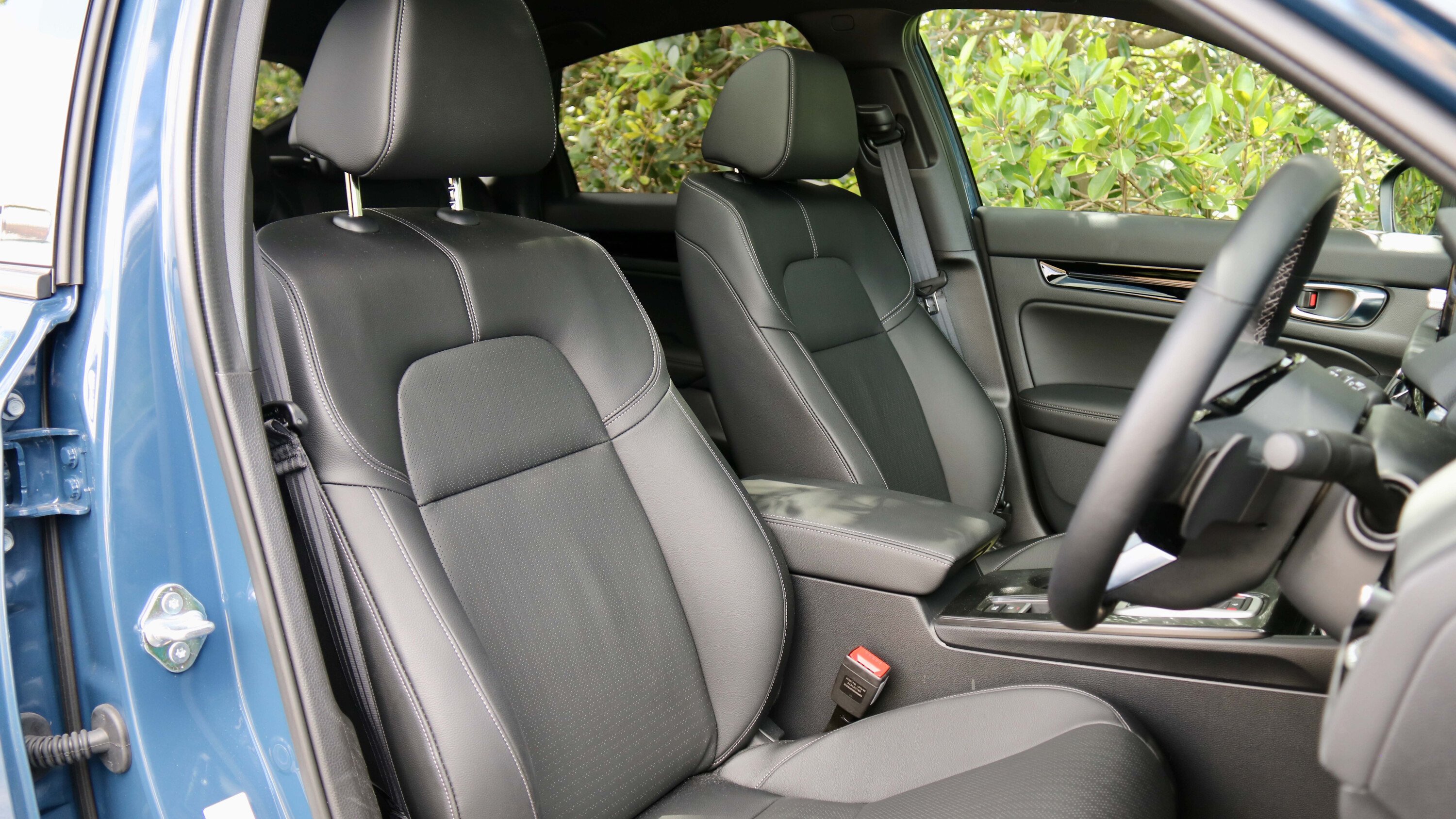
The Civic features a 9.0-inch touchscreen which now uses Google-based software. It’s quicker to use than before and its menus are still super easy to understand. Because of the Google integration, it now features Google Maps for its navigation and access to the Google Play store to download apps. It’s also useful if you already use Google features as you can sign into the car.
Ahead of the driver sits a 10.2-inch digital driver’s display that’s good quality and easy to use, though it’s unable to display a map like in a Volkswagen Group product. Usefully, however, when the cruise control is activated, it displays the car from the rear with the lanes and other cars around it like a Tesla.
The 12-speaker Bose sound system is solid, with effective bass and good clarity, though the Bose unit in the Mazda3 sounds better.
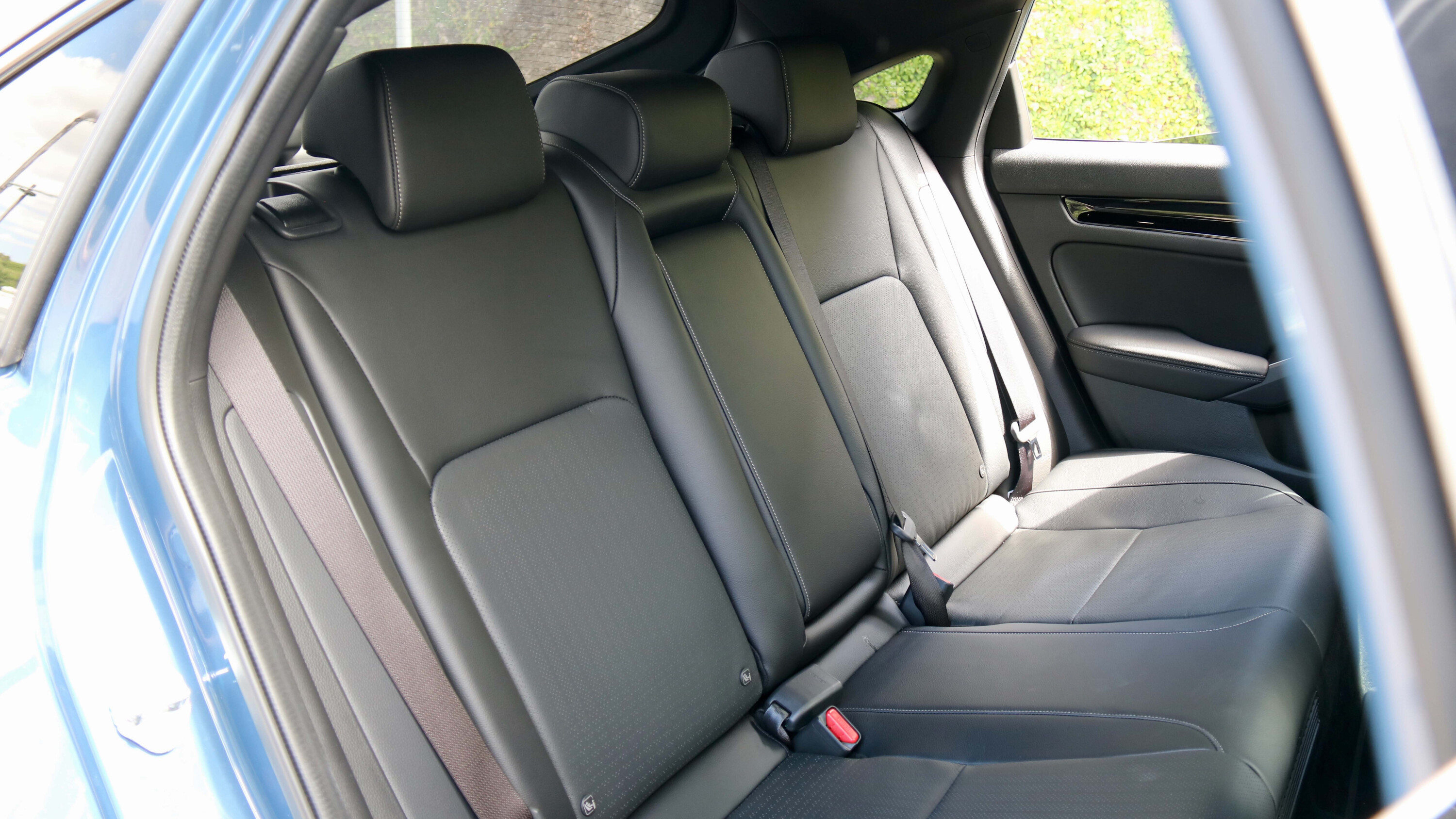
The rear seat of the Civic is spacious for the segment with ample legroom and pretty good headroom for six-footers, though a Skoda Scala is still roomier. Unlike the smaller HR-V, it features five seatbelts and three adults will be fine for short trips. It’s a well-featured space, with map pockets, door pockets, a central armrest with cup holders, air vents and two USB-C charging ports.
At 409-litres, the boot of the Civic is one of the largest in the segment, and much bigger than the 295L boot in the Mazda3, though still smaller than the 467L boot in the Scala.
There’s no spare wheel but some under-floor storage in its place. There are a few hooks and the boot cover can be retracted without having to be taken out of the boot. The rear seats fold easily to create a large space – no figure is given for when they are folded – but the floor isn’t flat when done so.
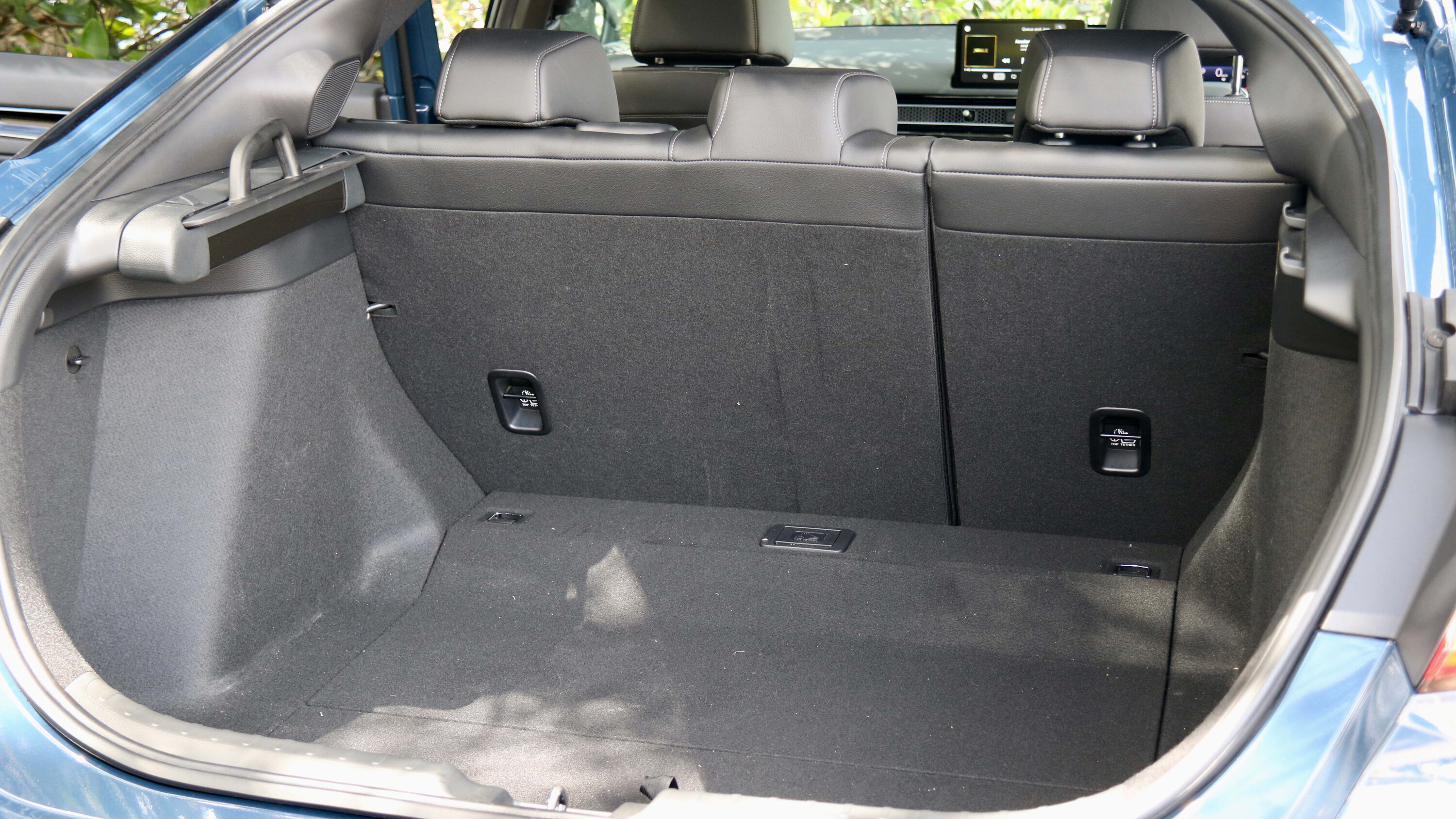
On the road
As we found when we reviewed the pre-facelifted model, the Civic’s chassis is well balanced with good front-end grip, a generally great ride quality and – much to the delight of enthusiasts – Michelin Pilot Sport 4 tyres.
While its chassis is not quite as sharp as a Corolla, the ride is more resolved and road noise levels are also much quieter. In an age where performance cars are under attack, it’s nice to know that regular grocery getters provide a smile from behind the wheel.
The hybrid system is impressive as well, effectively saving charge from regenerative braking and being charged by the 2.0-litre petrol engine, using it to allow the car to run on EV-only power in most stop-start situations.
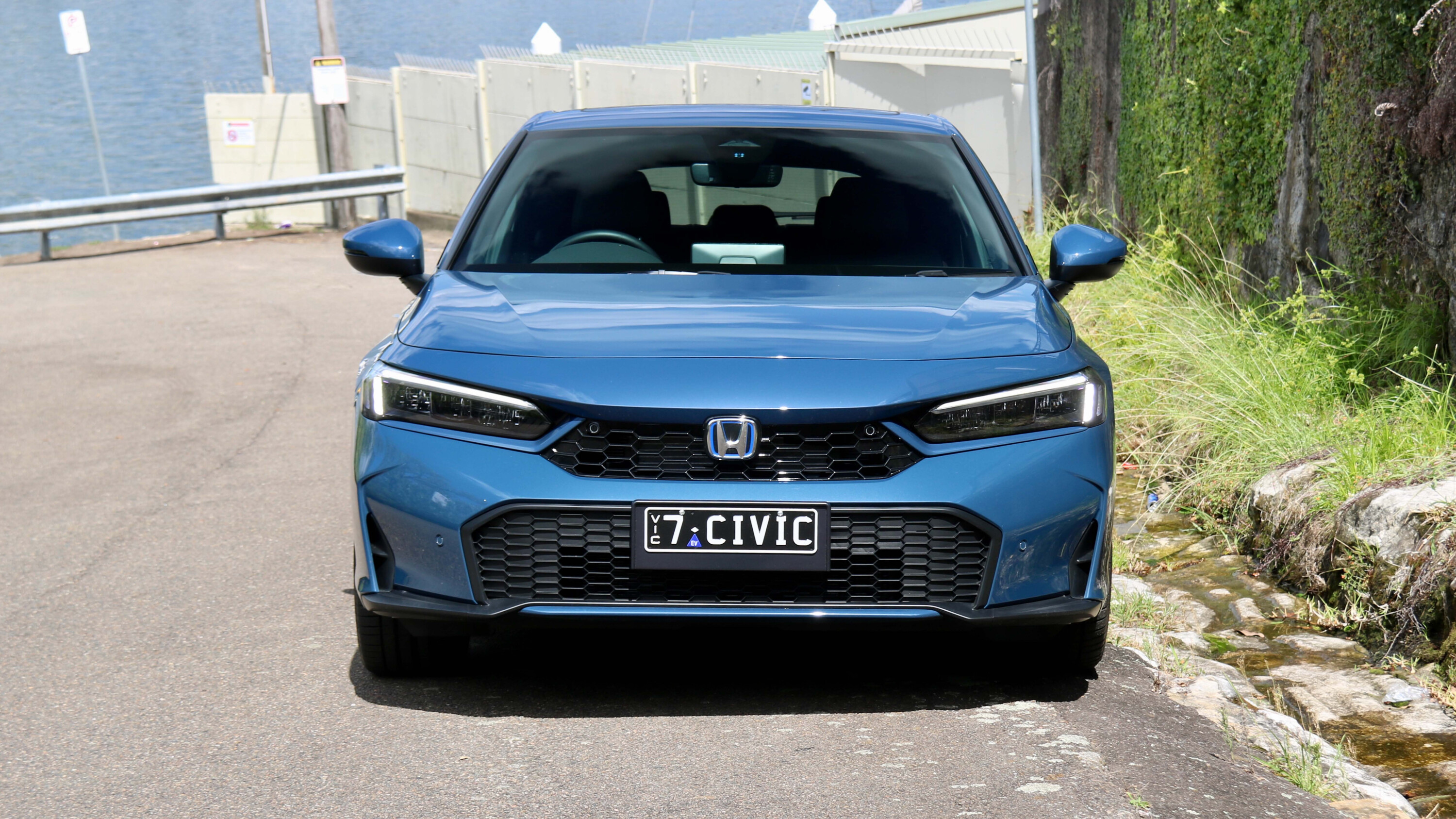
When the petrol engine fires up, it’s more refined than a Toyota hybrid and that’s mostly because the gearbox features stepping like a proper gearbox, instead of the rubbery dynamic of the Toyota’s CVT.
There are paddle shifters to control the regenerative braking – which oddly revert to their lowest setting once you’re off the brakes – and eco, normal, sport, as well as new individual driving modes to further tune the driving experience.
Unlike the Corolla, however, there’s no dedicated EV driving mode, but we’re not sure that many drivers will mind considering how efficient the Civic is.
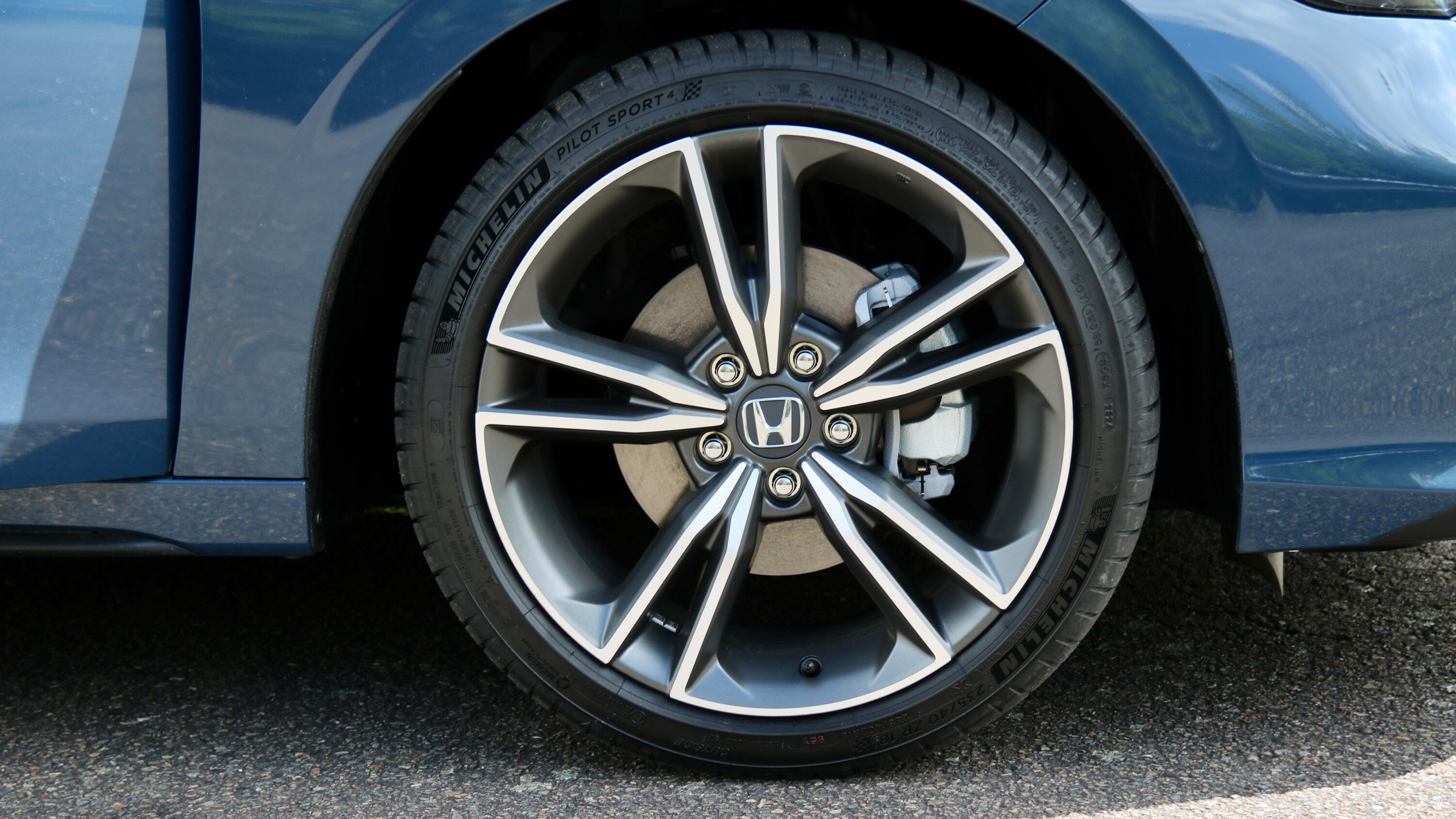
Service and warranty
The Civic is covered by a five-year/unlimited km warranty with five years of roadside assistance, and an eight-year/160,000km warranty for the battery. That warranty term matches most rivals, though Skoda includes two extra years for seven in total.
Service intervals are annual or 10,000km (whichever comes first), and each of the first five services costs $199 each for a total of $995 over 50,000km of driving. Three years of Honda Connect is included with the Civic’s price, after which point owners must pay a fee.
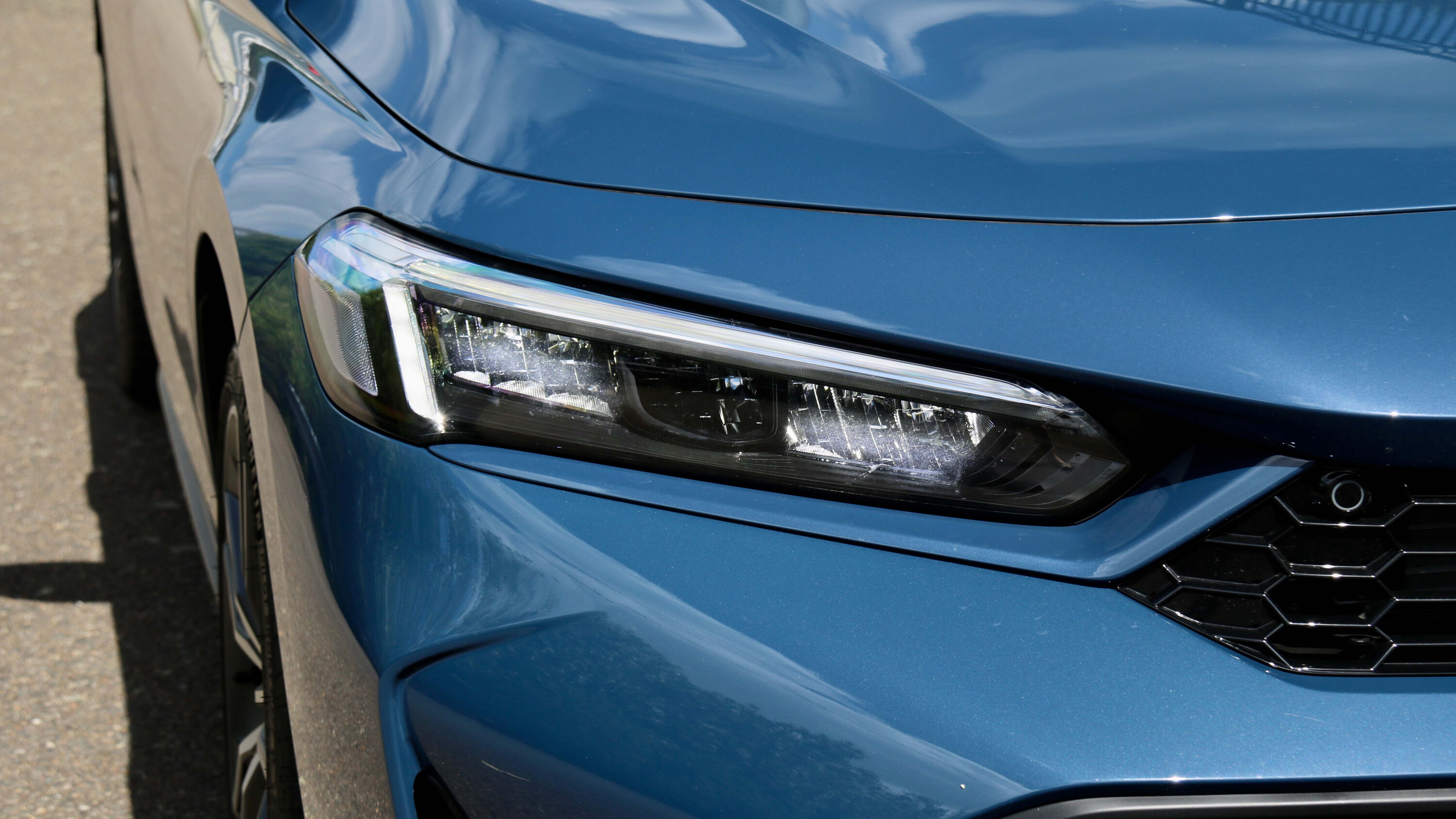
Verdict: Should I buy a 2025 Honda Civic?
There’s no question that the updated Civic is one of the best products in the small car segment. It just doesn’t do much wrong: it’s practical, efficient, fun to drive, well equipped, cheap to service and covered by a pretty good warranty too. It’s not perfect – there’s no spare tyre, for example – but it’s just a really well engineered product, or exactly what we’d expect from Honda.
The biggest issue with the Civic is its price. There’s no doubting that it’s a great product, but many buyers will overlook it simply because of its position in the market.
Sub-$50,000 where the base model sits is where the top-spec LX should be priced, and oddly enough, the larger ZR-V hybrid SUV that’s based on the Civic costs $1,000 less. Regardless of the pricing though, the Civic is a great all-rounder and if you’re able to justify the price, it’s worth strong consideration.
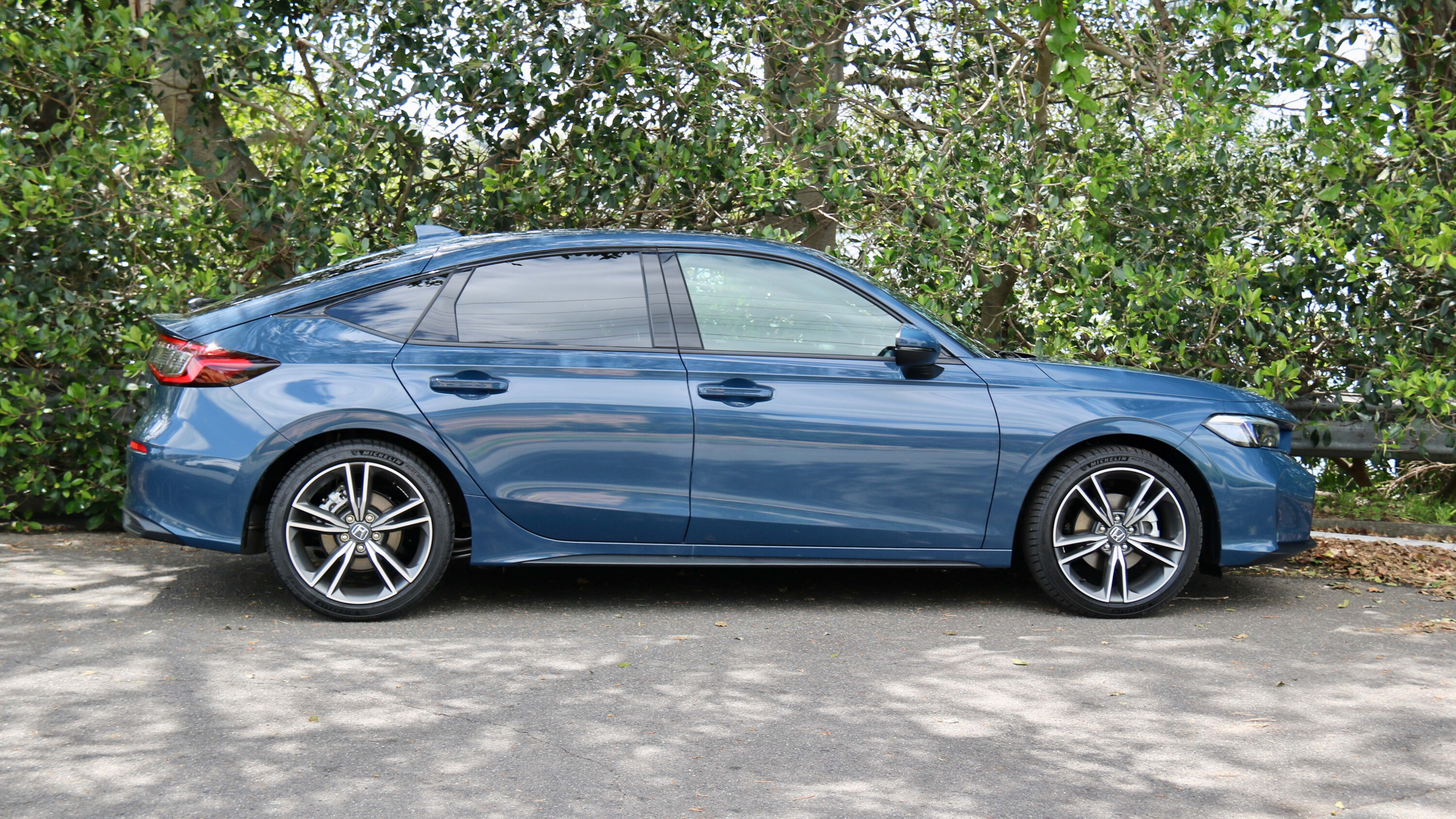
Civic rivals:
u2b06ufe0f Back to topThings we like
- An excellent all-rounder
- Fun to drive, yet still quite efficient
- Quite practical with a large boot
Not so much
- It’s just too expensive to buy
- No spare wheel
- Short 10,000km service intervals
We recommend
-
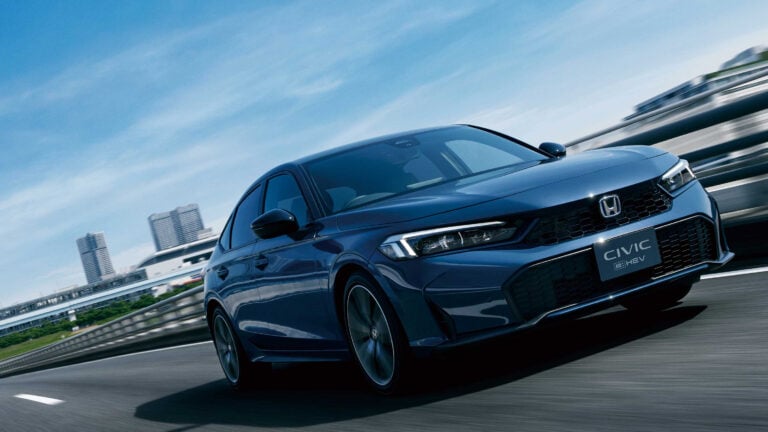 News
News2025 Honda Civic to go all-hybrid
Next year, the only non-hybrid Civic you’ll be able to buy in Australia will be the Type R
-
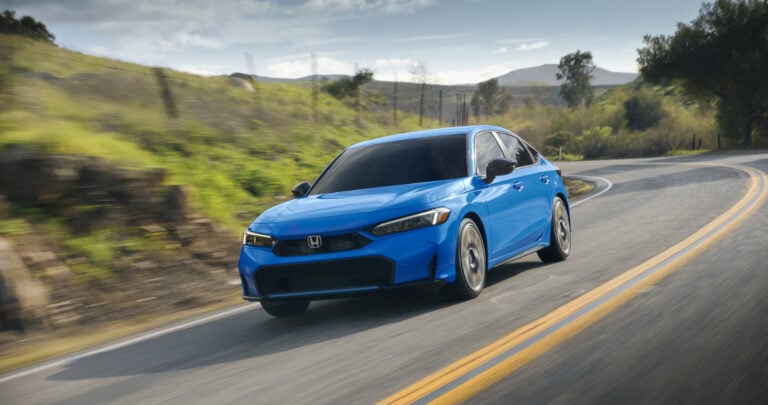 News
News2025 Honda Civic facelift revealed, Australian timing unclear
Honda has unveiled a facelifted version of the Civic in North America, previewing future changes for the Japanese-built version sold in Australia
-
 News
NewsNew car calendar 2026: All the new cars coming to Australia next year
Here’s the WhichCar by Wheels guide to all the new cars that will launch in Australia in 2026. Check back in regularly for updates...


